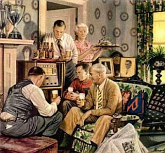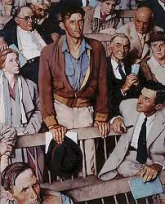By Gary L. Heckman
Today we are engaged, through the media, with the politics of electing a new President, members of Congress and Senate. Most electors understand the positions of our leaders at the national level, whether it be Democrat or Republican, left, right or middle. This information is being broadcast and published every day in every news outlet, both conservative and liberal, and being informed on which way to vote is relatively simple. Do you agree or disagree with the platform of each of the parties? There is no excuse for being undecided how to vote at the national level especially with the information overload we are subject to.
The next level of government that voters must choose is at the state; usually for Governor, Representatives and Senators. Many states also have various ballot initiatives for the electors to decide. Michigan, for example, has three proposals that would change the State’s Constitution. While most elected officials at the state level usually follow party lines, they sometimes change there stance on various issues. The need for further research by the voters is necessary to make a learned decision. This involves reading statewide newspapers, watching local news programs, contacting the individuals involved and party headquarters and, especially, visiting the various websites, which most will have. Statewide issues are a little more complicated because advertising campaigns usually give only one side of the issue. Sometimes these types of decisions become a personal choice. I.E. Are you in favor of “collective bargaining rights” to become part of the State Constitution? The pros and cons must be weighed and your opinion is usually how you end up voting. Each ballot issue must be read carefully and your local Clerk will have copies of the ballot for you to review. Sometimes on these vaguely worded proposals, “yes” means “no” and “no” means “yes”, so you must be very careful in your review.
Finally, choices have to made at the local level. Many important decisions that directly affect the people the most are done in the local communities by the local officials. Local government is closest to the people and usually decisions at this stage may have a considerable impact. Local government usually exists as the lowest tier of public administration within a state. Common names for local government entities include county, district, city, township and village. Unless we are talking about large metropolitan areas, usually elected local officials do not follow party lines and sometimes , unfortunately, are elected based on personality, popularity or name recognition and not necessarily political stance. Oftentimes, candidates have single issues motivating them to run and may not be concerned with all issues. Normally, ballot issues at the local level are easier to understand and make decisions on. Do you want to pass millage issues for roads, schools, capital improvement projects, etc? Are you in “favor” or “against” is usually the way you will vote. Again, the methods used to familiarize yourself on both ballot issues and officials is thru local news media, personal contact, and, sometimes, web sites. Another decision making process, especially at the local level, is word of mouth. Discussions at the coffee shop, barbershop, friends and relatives will make a big impact on elections. Very often at the local level, some organization will sponsor a “Meet the Candidates” night to better understand a candidate and to question directly. These events are very important and, regrettably, poorly attended.
In summary, get to know your candidates and issues through every means possible so that you will make an educated choice on the ballot. Some of the ways to learn and understand candidates and issues have been mentioned but are not all inclusive and you may have methods of your own.
Research what you care about and see how this fits with your ballot decisions. Find all opportunities to meet with the candidates and communicate with them in every means possible. Reach out to others with common interests and discuss the proposals. But none of this is important unless you vote.
Bio:
Gary L. Heckman:
Gary L. Heckman is a retired City Manager from a small town in the midwest. He has over 30 years of work experience involving local units of government ranging from Municipal Manager, Chief Tax Administrator, Municipal Treasurer, Chief Building Inspector, Planning and Zoning Official, Real Estate Appraisal and Business Educator. He has a B.S. Degree from Western Michigan University in Education and Accounting and post graduate work in Public Administration and Guidance and Counseling from the University of Wisconsin and Lake Superior State University. He holds a Michigan Appraiser 3 certification and a Michigan Real Estate License. He is also has been certified as a Building and Plan Reviewer and Municipal Finance Officer in the State of Michigan. He holds a Secondary School Certification from both Michigan and Wisconsin where he taught business and accounting classes.








